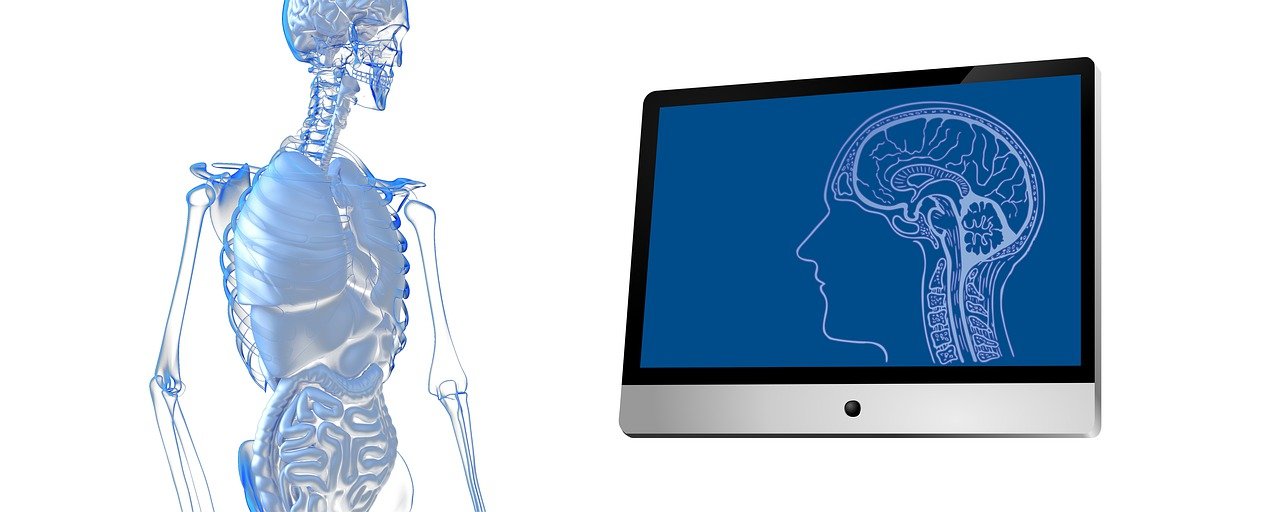If you’re someone who’s been struggling with the frustrating symptoms of irritable bowel syndrome (IBS), you may be wondering if there are any natural remedies out there that can provide some relief. It’s no secret that IBS can significantly impact your daily life, causing discomfort, bloating, and even pain. But before you reach for over-the-counter medications, you might want to consider exploring the world of herbs. Yes, you heard that right – there are indeed herbs that have shown promising results in helping to alleviate the symptoms of IBS. In this article, we’ll take a closer look at a few of these natural remedies and find out how they may be able to provide you with some much-needed relief. So, let’s dive in and discover the herbal solutions that could potentially improve your IBS symptoms.
Ginger
Overview of ginger as a potential herb for relieving IBS symptoms
Ginger, botanically known as Zingiber officinale, has been used for centuries as both a spice and a medicinal herb. It is well-known for its anti-inflammatory and digestive properties, making it a potential option for relieving symptoms of irritable bowel syndrome (IBS). Ginger has been traditionally used to soothe stomach discomfort, reduce bloating, and alleviate nausea, all of which are common symptoms experienced by individuals with IBS.
Mechanism of action of ginger in alleviating IBS symptoms
The active compounds in ginger, such as gingerols and shogaols, have been found to have anti-inflammatory and anti-spasmodic effects on the gastrointestinal (GI) tract. These compounds work by inhibiting certain inflammatory mediators and reducing muscle contractions in the GI tract, thereby relieving symptoms commonly associated with IBS, including abdominal pain, bloating, and diarrhea.
Research evidence supporting the use of ginger for IBS symptom relief
Several studies have investigated the potential benefits of ginger in relieving IBS symptoms. A randomized controlled trial published in the journal of Complementary Therapies in Medicine found that ginger supplementation significantly reduced abdominal pain and bloating in individuals with IBS compared to a placebo group. Another study published in the journal of Digestive Diseases and Sciences demonstrated that ginger extract reduced intestinal inflammation and improved GI motility in animal models of IBS.
Recommended dosage and preparation of ginger for IBS treatment
The recommended dosage of ginger for relieving IBS symptoms may vary depending on the individual and the severity of their symptoms. However, a typical dosage range is between 1 to 3 grams of ginger powder or 5 to 10 grams of fresh ginger root daily. Ginger can be consumed in various forms, such as fresh ginger slices, ginger tea, ginger supplements, or adding ginger powder to meals and beverages. It is important to consult with a healthcare professional or a registered herbalist to determine the appropriate dosage and preparation method for your specific needs.
Peppermint
Overview of peppermint as a potential herb for relieving IBS symptoms
Peppermint, scientifically known as Mentha piperita, is a herb that has long been used for its soothing and calming effects on the digestive system. It contains compounds called menthol and menthone, which provide the herb with its distinctive aroma and cooling sensation. Peppermint has been recognized for its ability to relax the muscles of the GI tract, making it a promising option for relieving symptoms of IBS, such as abdominal pain, bloating, and gas.
Mechanism of action of peppermint in alleviating IBS symptoms
The primary active component in peppermint, menthol, has been found to have antispasmodic properties that help to relax the smooth muscles of the GI tract. This relaxation effect can reduce the frequency and intensity of muscle contractions in the intestines, which are often associated with symptoms of IBS. Additionally, peppermint may also have analgesic and anti-inflammatory effects on the gut, further contributing to its potential benefits in relieving IBS symptoms.
Research evidence supporting the use of peppermint for IBS symptom relief
Research studies have provided evidence supporting the use of peppermint for alleviating symptoms of IBS. A systematic review and meta-analysis published in the journal of Digestive and Liver Disease analyzed the efficacy of peppermint oil capsules in treating IBS symptoms. The results showed that peppermint oil significantly reduced abdominal pain, bloating, and overall IBS severity when compared to a placebo. Another randomized controlled trial published in the journal of Phytotherapy Research found that peppermint oil significantly improved abdominal pain, bloating, and stool consistency in individuals with IBS.
Recommended dosage and preparation of peppermint for IBS treatment
The recommended dosage of peppermint for relieving IBS symptoms is typically in the form of enteric-coated peppermint oil capsules. The usual dosage range is between 0.2 to 0.4 mL of peppermint oil, taken two to three times daily. It is advisable to follow the instructions provided by the manufacturer or consult with a healthcare professional to determine the appropriate dosage and duration of treatment. It is worth noting that peppermint tea may provide some relief for milder symptoms, but the therapeutic effects may be less potent compared to peppermint oil capsules.

This image is property of pixabay.com.
Fennel
Overview of fennel as a potential herb for relieving IBS symptoms
Fennel, scientifically known as Foeniculum vulgare, is a herb with a long history of culinary and medicinal use. It is commonly used as a natural remedy for digestive complaints, including IBS symptoms. Fennel contains various phytochemicals, such as anethole and fenchone, which contribute to its aromatic and digestive properties. The soothing and carminative effects of fennel make it an attractive option for individuals seeking relief from IBS-related discomfort.
Mechanism of action of fennel in alleviating IBS symptoms
The essential oils present in fennel, particularly anethole, exhibit antispasmodic and anti-inflammatory properties that can help alleviate symptoms of IBS. Fennel works by relaxing the smooth muscles of the GI tract, which can reduce abdominal pain, bloating, and cramping associated with IBS. Additionally, the compounds found in fennel may also possess antimicrobial properties that could help to address any underlying gut dysbiosis, which is often observed in individuals with IBS.
Research evidence supporting the use of fennel for IBS symptom relief
Although limited, there is some research evidence supporting the use of fennel for relieving symptoms of IBS. A randomized controlled trial published in the Journal of Ethnopharmacology evaluated the effects of fennel extract in individuals with IBS. The study found that fennel extract significantly improved IBS-related symptoms, including bloating, flatulence, and overall quality of life when compared to a placebo group. Another study published in the journal of Phytotherapy Research demonstrated that fennel oil effectively reduced abdominal pain and improved bowel movements in individuals with IBS.
Recommended dosage and preparation of fennel for IBS treatment
Fennel can be consumed in various forms, including fennel seeds, fennel tea, or fennel supplements, to relieve symptoms of IBS. The recommended dosage of fennel seeds is generally between 1 to 1.5 grams per day. Fennel tea can be prepared by steeping 1 to 2 teaspoons of crushed fennel seeds in 1 cup of hot water for about 10 minutes. It is advisable to consult with a healthcare professional or a registered herbalist to determine the appropriate dosage and preparation method for your specific needs.
Chamomile
Overview of chamomile as a potential herb for relieving IBS symptoms
Chamomile, scientifically known as Matricaria chamomilla, is a well-known herb that has been used for centuries in traditional medicine. It is valued for its calming and soothing properties, making it a potential option for relieving symptoms of IBS. Chamomile contains various bioactive compounds, such as chamazulene and apigenin, which contribute to its anti-inflammatory and gastrointestinal benefits. It has been traditionally used to ease digestive discomfort, reduce inflammation, and promote relaxation.
Mechanism of action of chamomile in alleviating IBS symptoms
Chamomile exerts its beneficial effects on IBS symptoms through its anti-inflammatory, antispasmodic, and carminative properties. The bioactive compounds present in chamomile, particularly chamazulene, have been found to inhibit inflammatory mediators and reduce gut inflammation, which is often observed in individuals with IBS. Additionally, chamomile can help to relax the smooth muscles of the GI tract, alleviating abdominal pain, bloating, and cramping. Its carminative properties can also aid in reducing gas and promoting healthy digestion.
Research evidence supporting the use of chamomile for IBS symptom relief
Several studies have investigated the potential benefits of chamomile in relieving symptoms of IBS. A randomized controlled trial published in the Journal of Clinical Gastroenterology evaluated the effects of chamomile extract in individuals with IBS. The study found that chamomile extract significantly reduced abdominal pain, bloating, and overall IBS severity compared to a placebo group. Another study published in the journal of European Journal of Gastroenterology & Hepatology demonstrated that chamomile tea improved overall IBS symptoms, including abdominal pain and discomfort.
Recommended dosage and preparation of chamomile for IBS treatment
Chamomile can be consumed as chamomile tea or in the form of chamomile supplements for relieving IBS symptoms. The recommended dosage of chamomile tea is typically 1 to 2 cups per day, prepared by steeping 2 to 3 teaspoons of dried chamomile flowers in 1 cup of hot water for about 10 minutes. Chamomile supplements are available in various forms, such as capsules or liquid extracts. It is important to consult with a healthcare professional or a registered herbalist to determine the appropriate dosage and preparation method based on your individual needs and potential interactions with other medications.

Turmeric
Overview of turmeric as a potential herb for relieving IBS symptoms
Turmeric, scientifically known as Curcuma longa, is a bright yellow spice that has been used for thousands of years in traditional medicine. It contains a bioactive compound known as curcumin, which has potent anti-inflammatory and antioxidant properties. Turmeric has gained attention as a potential herb for relieving symptoms of IBS due to its ability to modulate the immune response and reduce inflammation in the GI tract.
Mechanism of action of turmeric in alleviating IBS symptoms
The main active component of turmeric, curcumin, has been found to exert its anti-inflammatory effects by inhibiting various molecular targets involved in the inflammation process. It can suppress the production of inflammatory mediators, such as cytokines and prostaglandins, while also enhancing the activity of natural antioxidants in the body. By reducing inflammation in the GI tract, turmeric may help to alleviate symptoms of IBS, including abdominal pain, bloating, and diarrhea.
Research evidence supporting the use of turmeric for IBS symptom relief
Although limited, several studies have shown promising results regarding the use of turmeric for relieving symptoms of IBS. A randomized controlled trial published in the Journal of Alternative and Complementary Medicine investigated the effects of curcumin supplementation in individuals with IBS. The study demonstrated that curcumin supplementation significantly reduced abdominal pain, bloating, and overall IBS severity compared to a placebo. Another study published in the journal of Frontiers in Pharmacology found that curcumin effectively reduced inflammation and improved intestinal motility in animal models of IBS.
Recommended dosage and preparation of turmeric for IBS treatment
The recommended dosage of turmeric for relieving IBS symptoms can vary depending on the individual and the severity of their symptoms. A typical dosage range is between 1 to 3 grams of turmeric powder or 400 to 600 milligrams of curcumin extract daily. Turmeric can be consumed in various forms, such as adding it to meals and beverages, turmeric supplements, or drinking turmeric tea. It is important to choose high-quality turmeric products and consult with a healthcare professional or a registered herbalist to determine the appropriate dosage and preparation method for your specific needs.
Cinnamon
Overview of cinnamon as a potential herb for relieving IBS symptoms
Cinnamon, scientifically known as Cinnamomum verum or Cinnamomum cassia, is a fragrant spice derived from the bark of certain tree species. It has been used for its culinary and medicinal properties for centuries. Cinnamon is known for its rich antioxidant and anti-inflammatory properties, making it a potential option for relieving symptoms of IBS. It is often used to soothe digestive complaints, improve gut health, and regulate blood sugar levels.
Mechanism of action of cinnamon in alleviating IBS symptoms
The bioactive compounds present in cinnamon, including cinnamaldehyde, have been found to possess anti-inflammatory properties that can help reduce inflammation in the GI tract. By reducing inflammation, cinnamon may alleviate symptoms of IBS, such as abdominal pain and discomfort. Additionally, cinnamon may also have antimicrobial properties that can help maintain a healthy balance of gut bacteria, which is important for overall digestive health.
Research evidence supporting the use of cinnamon for IBS symptom relief
While limited, some research studies have explored the potential benefits of cinnamon in alleviating symptoms of IBS. A randomized controlled trial published in the journal of Food & Function investigated the effects of cinnamon extract in individuals with IBS. The study demonstrated that cinnamon extract significantly improved overall IBS symptoms, including abdominal pain and bowel movements, compared to a placebo. Another study published in the journal of Molecular Nutrition & Food Research found that cinnamon extract improved intestinal motility and reduced inflammation in animal models of IBS.
Recommended dosage and preparation of cinnamon for IBS treatment
Cinnamon can be consumed in various forms, including cinnamon powder, cinnamon tea, or cinnamon supplements, to relieve symptoms of IBS. The recommended dosage of cinnamon for IBS relief is typically between 0.5 to 1 teaspoon of cinnamon powder per day. Cinnamon tea can be prepared by steeping a cinnamon stick or 1 teaspoon of cinnamon powder in 1 cup of hot water for about 10 minutes. As with any herbal remedy, it is important to consult with a healthcare professional or a registered herbalist to determine the appropriate dosage and preparation method for your specific needs.

This image is property of pixabay.com.
Licorice
Overview of licorice as a potential herb for relieving IBS symptoms
Licorice, scientifically known as Glycyrrhiza glabra, is a herb that has been used for centuries in traditional medicine due to its various health benefits. Licorice root contains glycyrrhizin, a compound responsible for its sweet taste and medicinal properties. Licorice has been recognized for its soothing and anti-inflammatory effects on the digestive system, making it a potential option for relieving symptoms of IBS, particularly in cases of gut inflammation.
Mechanism of action of licorice in alleviating IBS symptoms
The active compound found in licorice, glycyrrhizin, has been found to exert anti-inflammatory effects by inhibiting the release of inflammatory mediators and reducing the activity of certain immune cells involved in the inflammation process. Licorice also contains flavonoids and other bioactive compounds that possess antioxidant properties, which can further contribute to its beneficial effects on gut health. By reducing inflammation and oxidative stress in the GI tract, licorice may help alleviate symptoms of IBS, such as abdominal pain, bloating, and diarrhea.
Research evidence supporting the use of licorice for IBS symptom relief
Several studies have investigated the potential benefits of licorice in relieving symptoms of IBS. A systematic review and meta-analysis published in the journal of Clinical and Experimental Gastroenterology analyzed the efficacy of licorice extract in treating IBS symptoms. The results indicated that licorice extract significantly improved overall IBS symptoms, including abdominal pain and bloating, compared to a placebo. Another study published in the journal of Evidence-Based Complementary and Alternative Medicine demonstrated that licorice root extract significantly reduced inflammation and improved gut function in animal models of IBS.
Recommended dosage and preparation of licorice for IBS treatment
Licorice can be consumed in various forms, including licorice root tea, licorice supplements, or licorice extracts, to relieve symptoms of IBS. The recommended dosage of licorice root tea is typically 1 cup per day, prepared by steeping 1 teaspoon of licorice root in 1 cup of hot water for about 10 minutes. It is important to note that licorice should not be used for an extended period or in high doses due to the potential risk of side effects, such as high blood pressure and fluid retention. It is advisable to consult with a healthcare professional or a registered herbalist to determine the appropriate dosage and duration of treatment for your specific needs.
Marshmallow Root
Overview of marshmallow root as a potential herb for relieving IBS symptoms
Marshmallow root, scientifically known as Althaea officinalis, has a long history of use in traditional medicine due to its soothing and healing properties. The root of the marshmallow plant contains a high concentration of mucilage, a gel-like substance that has demulcent and anti-inflammatory effects on the gastrointestinal tract. Due to its soothing nature, marshmallow root is often considered as a potential herb for relieving symptoms of IBS, particularly in cases of gut inflammation and irritation.
Mechanism of action of marshmallow root in alleviating IBS symptoms
The mucilage present in marshmallow root forms a protective layer on the mucous membranes of the digestive tract, providing a soothing and moisturizing effect. This protective layer can help reduce inflammation, irritation, and damage to the lining of the GI tract, which are often observed in individuals with IBS. Additionally, marshmallow root can also promote healthy gut bacteria and enhance the integrity of the gut barrier, further contributing to its potential benefits in relieving IBS symptoms.
Research evidence supporting the use of marshmallow root for IBS symptom relief
Although limited, there is some research evidence supporting the use of marshmallow root for relieving symptoms of IBS. A randomized controlled trial published in the journal of Phytotherapy Research investigated the effects of marshmallow root extract in individuals with IBS. The study found that marshmallow root extract significantly reduced abdominal pain, bloating, and overall IBS severity compared to a placebo. Another study published in the journal of PLoS ONE demonstrated that marshmallow root extract improved gut barrier function and reduced inflammation in animal models of IBS.
Recommended dosage and preparation of marshmallow root for IBS treatment
Marshmallow root can be consumed in various forms, including marshmallow root tea, marshmallow root powder, or marshmallow root supplements, to relieve symptoms of IBS. The recommended dosage of marshmallow root tea is typically 2 to 4 grams of dried root per day, steeped in 1 cup of hot water for about 10 minutes. Marshmallow root powder or supplements should be taken according to the manufacturer’s instructions or the guidance of a healthcare professional or a registered herbalist. It is important to ensure the quality and purity of the marshmallow root products and consult with a healthcare professional to determine the appropriate dosage and duration of treatment for your specific needs.

This image is property of pixabay.com.
Slippery Elm
Overview of slippery elm as a potential herb for relieving IBS symptoms
Slippery elm, scientifically known as Ulmus rubra or Ulmus fulva, is a tree native to North America. The inner bark of the slippery elm tree has been used for centuries in traditional medicine for its soothing and healing properties. Slippery elm contains a high concentration of mucilage, similar to that found in marshmallow root, which provides it with its demulcent and protective effects on the gastrointestinal tract. Slippery elm is often considered as a potential herb for relieving symptoms of IBS, particularly in cases of gut inflammation and irritation.
Mechanism of action of slippery elm in alleviating IBS symptoms
The mucilage found in slippery elm forms a gel-like substance when combined with water, which can help coat and protect the mucous membranes of the digestive tract. This protective layer can help reduce inflammation, soothe irritation, and promote the healing of the GI tract lining, which are common issues in individuals with IBS. Additionally, slippery elm may also help improve nutrient absorption and alleviate symptoms such as abdominal pain, bloating, and diarrhea.
Research evidence supporting the use of slippery elm for IBS symptom relief
While limited, there is some research evidence supporting the use of slippery elm for relieving symptoms of IBS. A randomized controlled trial published in the journal of Alimentary Pharmacology & Therapeutics evaluated the effects of slippery elm bark in individuals with IBS. The study found that slippery elm significantly improved overall IBS symptoms, including abdominal pain and bloating, compared to a placebo group. Another study published in the journal of Integrative Medicine Research demonstrated that slippery elm improved bowel movements and reduced inflammation in animal models of IBS.
Recommended dosage and preparation of slippery elm for IBS treatment
Slippery elm can be consumed in various forms, such as slippery elm powder, slippery elm tea, or slippery elm supplements, to relieve symptoms of IBS. The recommended dosage of slippery elm powder is typically 1 to 2 teaspoons mixed with water or any beverage, taken two to three times daily. Slippery elm tea can be prepared by mixing 1 to 2 teaspoons of slippery elm powder with 1 cup of hot water and allowing it to steep for about 10 minutes. It is important to ensure the quality and purity of the slippery elm products and consult with a healthcare professional or a registered herbalist to determine the appropriate dosage and duration of treatment for your specific needs.
Aloe Vera
Overview of aloe vera as a potential herb for relieving IBS symptoms
Aloe vera, scientifically known as Aloe barbadensis, is a succulent plant that has been used for its medicinal properties for centuries. It is well-known for its gel-like inner leaf that contains various bioactive compounds, including polysaccharides and anthraquinones. Aloe vera has been recognized for its ability to soothe and cool inflamed tissues, making it a potential option for relieving symptoms of IBS, particularly in cases of gut inflammation.
Mechanism of action of aloe vera in alleviating IBS symptoms
The bioactive compounds present in aloe vera have been found to possess anti-inflammatory and immunomodulatory properties, which can help reduce inflammation in the GI tract and modulate the immune response. Aloe vera also contains polysaccharides that can provide a soothing and moisturizing effect on the digestive tract, helping to reduce irritation and promote the healing of damaged tissues. By reducing inflammation and promoting tissue repair, aloe vera may help alleviate symptoms of IBS, such as abdominal pain, bloating, and diarrhea.
Research evidence supporting the use of aloe vera for IBS symptom relief
Limited research studies have explored the potential benefits of aloe vera for relieving symptoms of IBS. A randomized controlled trial published in the Journal of Clinical Gastroenterology evaluated the effects of aloe vera gel in individuals with IBS. The study found that aloe vera gel significantly improved overall IBS symptoms, including abdominal pain and bloating, compared to a placebo group. Another study published in the journal of Phytomedicine demonstrated that aloe vera extract improved gastrointestinal motility and reduced inflammation in animal models of IBS.
Recommended dosage and preparation of aloe vera for IBS treatment
Aloe vera can be consumed in various forms, such as aloe vera gel, aloe vera juice, or aloe vera supplements, to relieve symptoms of IBS. The recommended dosage may vary depending on the individual and the specific product being used. Aloe vera gel or juice can be taken according to the manufacturer’s instructions or the guidance of a healthcare professional. It is important to choose high-quality aloe vera products and ensure that they do not contain aloin, a potentially harmful compound found in the outer leaf of the aloe vera plant. It is advisable to consult with a healthcare professional or a registered herbalist to determine the appropriate dosage and duration of treatment for your specific needs.
In conclusion, several herbs have shown potential in relieving symptoms of IBS. Ginger, peppermint, fennel, chamomile, turmeric, cinnamon, licorice, marshmallow root, slippery elm, and aloe vera all possess various characteristics that may help alleviate abdominal pain, bloating, and other discomforts associated with IBS. However, it is important to note that individual responses to these herbs may vary, and it is always recommended to consult with a healthcare professional or a registered herbalist before starting any new treatment. Finding the right herb, dosage, and preparation method for your specific needs can help in managing IBS symptoms and improving overall well-being.


